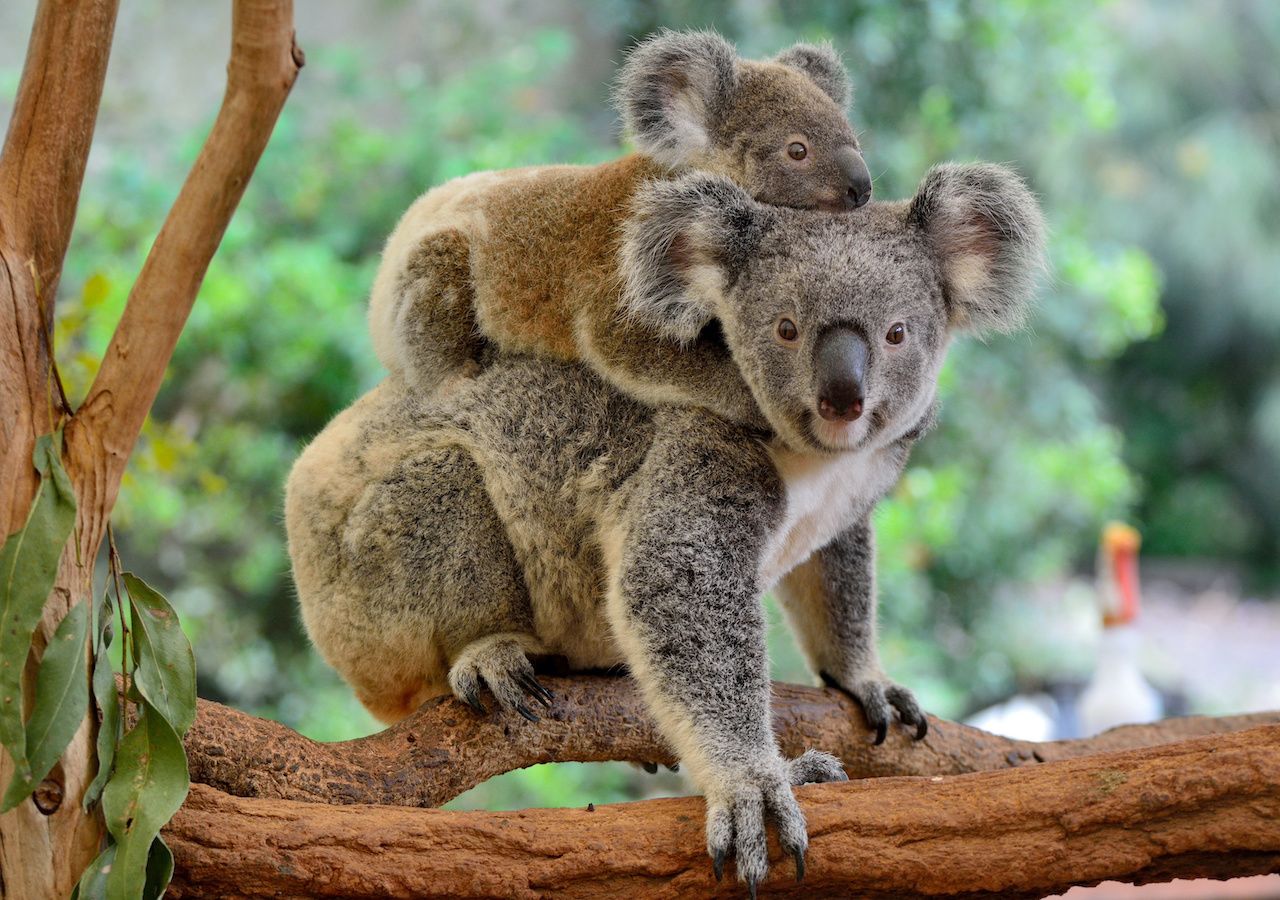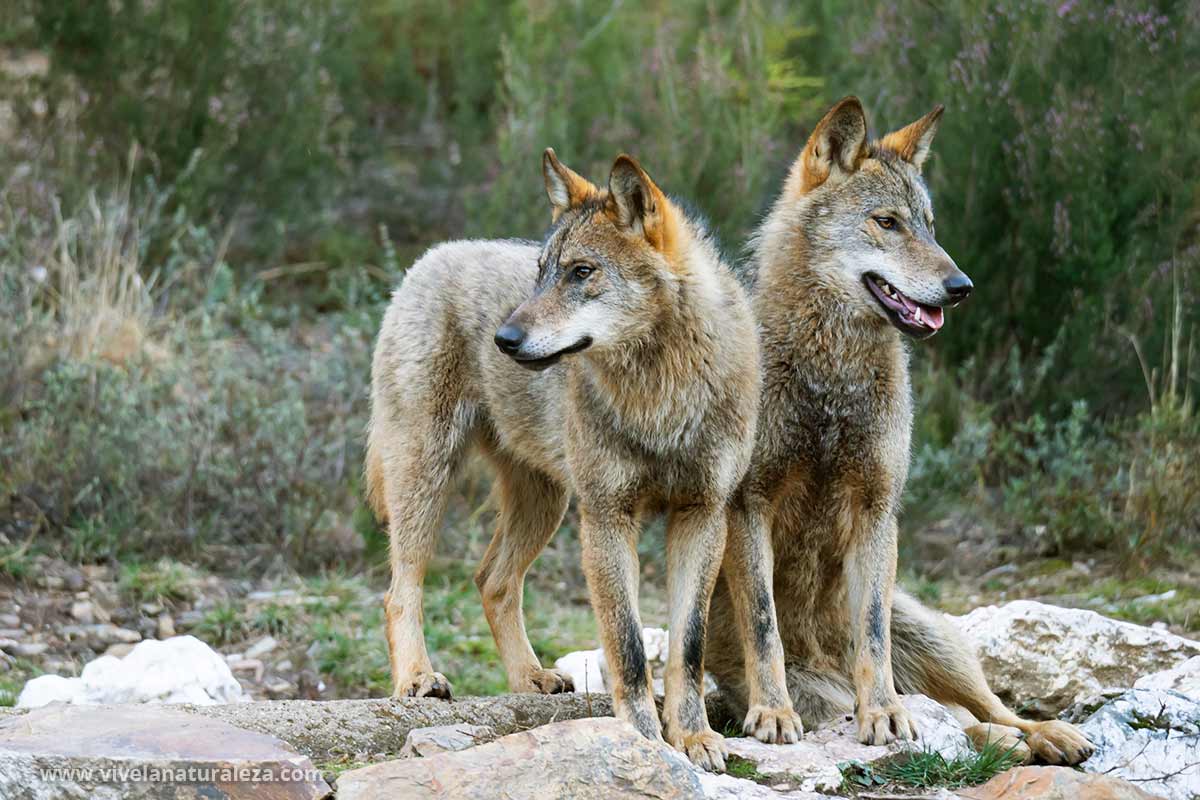What type of body and fins do fish have that help facilitate their movement?
Fusiform
Why are amphibians called amphibians?
Because they developed their lives between two environments: aquatic and terrestrial.
Where do reptiles get their name from?
They are named after the way they move, by dragging their belly along the ground or almost doing so (reptation)
List three main body parts or structures found in birds.
skin covered in feathers, four extremities, forelimbs are wings, hind legs covered in scales beak
Where do mammals get their name from?
Their name derives from the fact that the young are fed by their mothers through milk-secreting mammary glands.
Which group of mammals do humans belong to and why?
We belong to the placental group because we develop inside the maternal placenta.
Name three characteristics of fish.
Body covered in scales, fusiform body and fins, ectoderms, breathe through gills, they have a lateral line, mostly oviparous
How do amphibians lay their eggs. Explain why it is different to how fish lay eggs.
They are oviparous. They lay eggs differently from fish because their eggs are not shelled and laid in water. The eggs hatch into larvae and after metamorphosis they transform into adults.
Name at least three characteristics of reptiles.
thick skin without glands covered in scales, most of them have four legs except for snakes, ectoderms, breathe with lungs, almost all oviparous with their egg shells waterproof so they don't dry out.
What kind of body type do birds have and why?
Aerodynamically shaped body, for ease of flight.
Name three characteristics of mammals.
Name at least three characteristics that make humans unique from other mammals:
little hair covering body, bipedal (walk on two limbs), our face is flatter than other primates, young born defenceless and need a lot of care, highly developed and complex brain, we can communicate.
Name the two different types of fish.
Bony & Cartilaginous fish
Name three traits that amphibians share.
Skin without scales, moist gland (some with venom), most have four legs, they are ectoderms, cutaneous respiration, oviparous, eggs hatch into larva, they go through metamorphosis
Name the three groups of reptiles.
Chelonians (turtles), crocodilians (crocodiles, alligators and gavials) and squamates (lizards and snakes)
Describe the skeleton of birds.
It is very light because their bones have hollows to facilitate flight.
Name the three different types of mammals according to their reproduction.
Monotremes, Marsupials, and Placental
Name three ways vertebrates help humans:
source of food, work with us, transportation, company and affection, regulate the function of our environment.
Which type of fish has gills without an operculum, and has scales that are thicker and more pointed?
Cartilaginous fish
Name the two groups of amphibians.
Anurans: frogs and toads
Urodeles: salamanders and newts
Name three parts of this chelonian:

Head, carapace, scales
Describe the respiratory system of a bird.
Birds breathe through their lungs, but they also have air reserves, air sacs, which facilitate flight and provide more oxygen.
What type of mammal is this and why?

Marsupial (Koala)
give birth to underdeveloped young that finish in a pouch or marsupium.
How can vertebrates harm people?
large predators can attack, they can eat our crops, they can transmit disease.
Point to the lateral line on this fish and explain its function.

Name three differences between anurans and urodeles.
Anurans: short bodies, tailless, hind legs are longer than front legs, they have interdigital membrane on hind legs.
Urodeles: elongated bodies, long tail, legs are all same length (some don't have legs like cecilias) don't have interdigital membrane.
Name three parts of this crocodilian:

Trunk, tail, legs
Describe the difference between the two types of birds: wattled and ratite. Provide one example of these birds for each wattled and ratite.
Wattled: has highly developed keel, which allows them to fly (except penguins). This allows powerful muscles to attach to the keel.
Ex: sparrow, goldfinch, peregrine falcon
Ratite: do not have keel. These birds are sometimes very large. Their forelimbs are atrophied.
Ex: Ostrich and kiwi
What type of mammal is this and why?

Placental (wolf)
offspring is developed inside the mother's pouch or placenta. The offspring is connected to the mother. These pups are born fully developed.
Which animal kills the largest number of people per year?
mosquitos